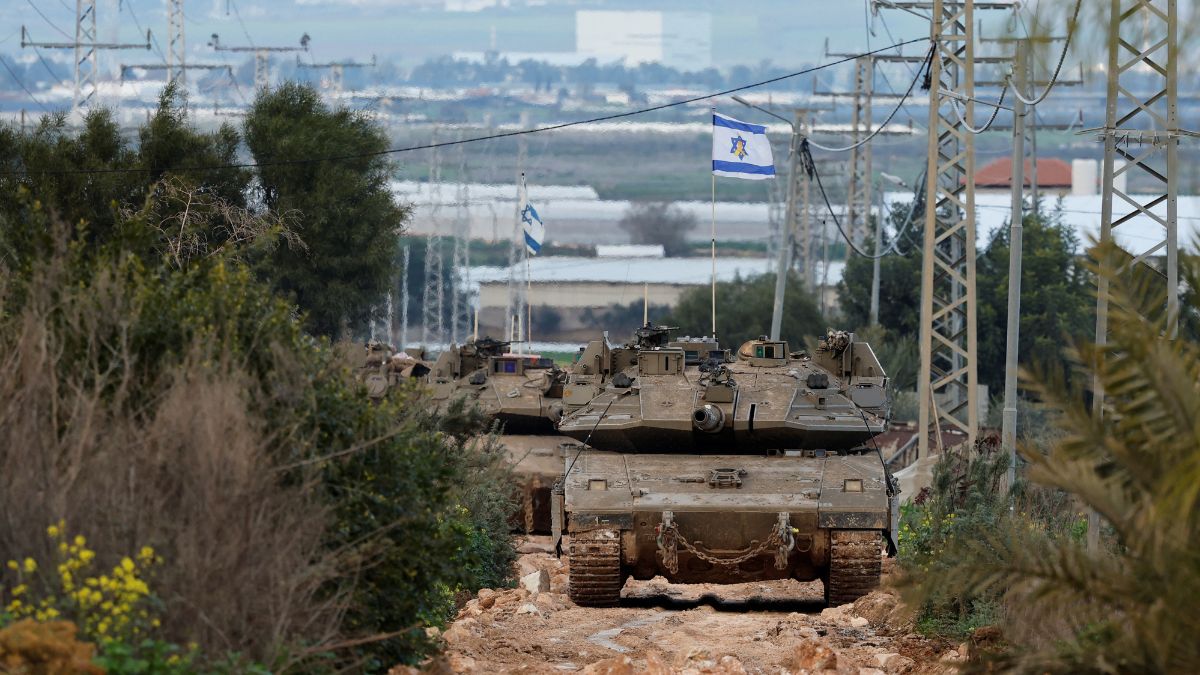For the first time in over two decades, Israel has deployed tanks into the occupied West Bank, marking a significant escalation in its military operations against Palestinian militant groups.
The move has drawn strong condemnation from Palestinian authorities, who see it as an alarming intensification of Israeli aggression.
With fighting in Gaza and Lebanon temporarily paused, Israel’s focus has shifted to the West Bank, where tensions have continued to rise.
Why the escalation in West Bank?
Israeli Prime Minister Benjamin Netanyahu and Defence Minister Israel Katz ordered the deployment of tanks and an increased military presence in the West Bank to combat what they describe as growing security threats from Palestinian militant groups such as Hamas and Islamic Jihad.
Israeli officials argue that the refugee camps in cities like Jenin and Tulkarm have become strongholds for militant activities and need to be dismantled.
The military operation has been marked by mass displacements, with approximately 40,000 Palestinians forced to flee their homes as the Israeli army expanded its crackdown on the region.
The offensive includes demolitions of homes, destruction of infrastructure, and restrictions on movement, with Israeli forces targeting areas such as Jenin, Tulkarm, Nablus, Qabatiya, and Deir Qaddis.
Defence Minister Israel Katz has stated that Israeli forces will maintain an “extended stay” in key refugee camps to prevent the return of displaced residents and ensure that militant activity does not regain a foothold.
“For the first time in decades in Judea and Samaria, we sent in tanks,” Katz said, using Israel’s terminology for the West Bank. “This means one thing, we are fighting terrorism by all means and anywhere.”
How have leaders reacted?
Palestinian leaders have condemned the military escalation, warning that it will only lead to further instability. Nabil Abu Rudeineh, a spokesperson for Palestinian President Mahmoud Abbas, described the deployment of tanks as “a dangerous Israeli escalation that will not lead to stability or calm.”
The Palestinian foreign ministry called on the international community to intervene, describing the operation as part of Israel’s illegal aggression.
Meanwhile, international organisations, including the International Committee of the Red Cross (ICRC), have voiced concerns over the humanitarian impact.
The ICRC warned that displaced civilians in the northern West Bank are in urgent need of basic necessities, including clean water, food, shelter, and medical care. “The population shall be treated humanely and protected from violence,” the ICRC said in a statement.
Netanyahu under pressure?
The shift in focus to the West Bank comes as Netanyahu faces increasing pressure from his far-right governing partners to crack down on Palestinian militant groups.
With military operations in Gaza and Lebanon temporarily on hold , the Israeli government has turned its attention to the longstanding security challenges in the West Bank.
“We are eliminating terrorists, commanders,” Netanyahu said on Friday during a visit to Jenin. “We are doing very, very important work against the desire of Hamas and other terrorist elements to harm us.”
Far-right Israeli leaders, including Finance Minister Bezalel Smotrich, have been vocal about pushing for a stronger crackdown and even the annexation of parts of the West Bank. Smotrich, who is a West Bank settler himself, has stated that the conflict in the region should be treated as an official war objective, reported CNN.
He has also indicated that the recent reelection of US President Donald Trump could provide an opportunity for further expansion of Israeli settlements and annexation policies.
What is the impact on the region?
The ongoing military operations have resulted in significant casualties, with hundreds of Palestinian fighters and civilians killed since October 7, 2023. The Palestinian Ministry of Health reports that over 1,000 Palestinians, including at least 184 children, have been killed in the West Bank and East Jerusalem.
In addition to the military actions, Jewish settlers have increased attacks on Palestinian communities, exacerbating tensions in the region.
The large-scale military operation which began last month, dubbed “Operation Iron Wall,” has intensified Israeli efforts to eliminate militant threats while simultaneously preventing displaced Palestinians from returning to their homes.
The military has also targeted UNRWA, the main United Nations agency providing aid to Palestinian refugees, by ordering it to halt operations in certain areas. Israeli officials have accused UNRWA of supporting militant groups .
What is the role of the US?
The response from the United States has been closely watched, as Trump’s administration has historically taken a pro-Israel stance. Trump’s recent comments on the possibility of annexation have raised concerns among Palestinian leaders, who fear a further erosion of their territorial claims.
His past policies, including recognising Jerusalem as Israel’s capital and cutting funding to Palestinian aid organisations, have already signaled a shift away from traditional US diplomatic efforts in the region.
While the Biden administration had previously attempted to re-engage with Palestinian leadership, Trump’s return to office has emboldened Israeli hardliners seeking to expand settlements and tighten control over the West Bank.
This has raised fears of a second “Nakba” — the term Palestinians use to describe their mass displacement following the creation of Israel in 1948.
With thousands displaced, growing casualties, and a lack of clear diplomatic solutions, the situation in the West Bank remains highly volatile.
With inputs from agencies
)